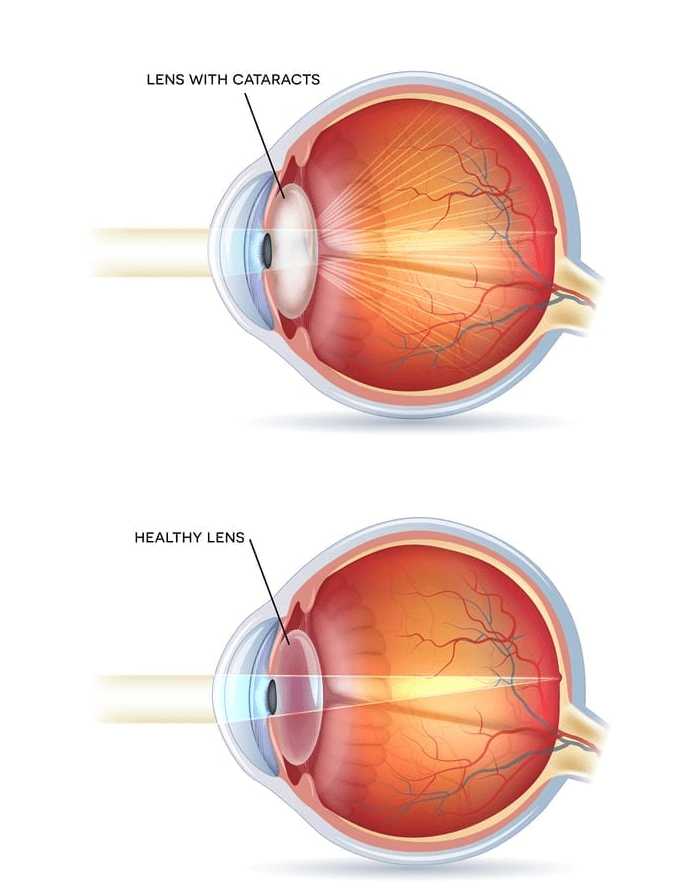Did you know…
that more than 50 percent of Americans age 80 or older either have at least one eye cataract or otherwise have already had one or more cataracts removed? The risk of getting cataracts increases with age, but that doesn’t mean that younger people in their 40’s and 50’s can’t get them too. In order to lower your risk of getting cataracts, the National Eye Institute recommends protecting your eyes with brimmed hats and a nutritious diet full of leafy green vegetables and antioxidant-rich foods.
Frequently Asked Questions
Should I see an eye doctor about cataracts?
Although you should be seeing your eye doctor regularly for eye exams, it is important to make an appointment at the first sign of vision changes. If you have not had any vision changes, but your are age 60 or older, you should be getting a comprehensive dilated eye exam and the minimum of one time every two years.
What should I expect if I need cataract surgery?
Cataract surgery is a very safe procedure performed every day across the U.S. If you require surgery on both eyes, note that only one eye will be operated on at a time. During the surgery, your eye will be numbed and you may be placed under sedation to help you relax during the procedure. Using a special instrument – often a laser – your eye doctor will carefully remove the clouded lens from your eye and replace it with an artificial one made of silicone, plastic, or acrylic. Because cataract removal is an outpatient procedure, you should be able to return home the same day as your surgery.
Will I need to follow-up with my eye doctor or follow any post-operative instructions?
Cataract surgery is successful in about 98 percent of all cases. Following the post-operative instructions of your eye doctor can help improve your chances of a positive outcome. You will experience some mild itching following your surgery, as well as some sensitivity to light. Be sure to use the eye drops prescribed to you in the days following your procedure and avoid lifting heavy objects or putting pressure on the eyes during the healing period.



